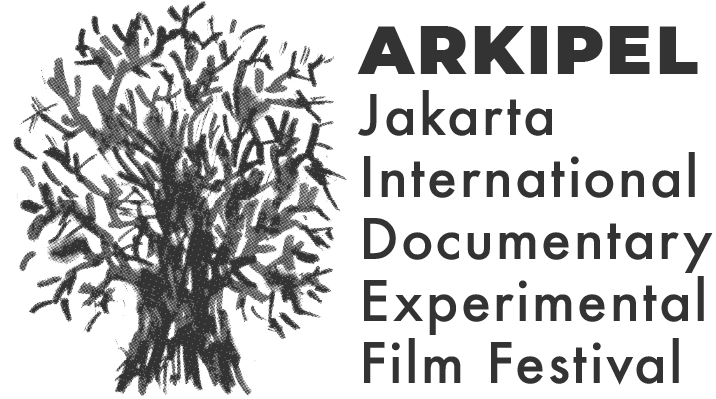august, 2015
Details
Menurut André Bazin, batas layar sinema bersifat sentrifugal terhadap realitas. Dengan kata lain, gambar pada layar sinema seakan mengarah ke luar, ke dunia riil kita. Pengertian dari representasi sinema, dengan
Details
Menurut André Bazin, batas layar sinema bersifat sentrifugal terhadap realitas. Dengan kata lain, gambar pada layar sinema seakan mengarah ke luar, ke dunia riil kita. Pengertian dari representasi sinema, dengan demikian, adalah sifat yang saling memengaruhi antara realitas sinematik dan realitas sehari-hari. Semasa Orde Baru, dua rujukan visual yang bisa dijadikan ilustrasi akan representasi peristiwa 65, yaitu filem Penumpasan Pengkhianatan G 30 S PKI (1985) karya Arifin C. Noer dan diorama peristiwa G 30 S di Museum Pengkhianatan PKI di Lubang Buaya, adalah cara pandang kekuasaan terhadap sejarah. Selain karena daya formalisme estetisnya yang memberi pengaruh besar terhadap psikologis dan imajinasi penonton, kedua produk historis tersebut sepenuhnya berdampak bagi lestarinya persepsi tunggal akan peristiwa 65 dalam pola kehidupan masyarakat Indonesia, hingga sekarang. Baru di era pasca-Reformasi kita bisa melihat dengan bebas sudut pandang yang lain, misalnya, dari kesaksian atau testimoni korban peristiwa 65.
Masa Orde Baru merupakan masa analog saat negara menjadi satu-satunya yang memproduksi wacana politik lewat narasi-narasi epik visual (filem). Dalam konteks medium, era analog Orde Baru adalah sebuah praktik visual yang mempraktikkan sistem pengetahuan terpusat yang didasari politico-phobia terkait medium itu sendiri yang dikuasai oleh segelintir pihak. Dalam konteks sosio-politik keberadaan medium, masa analog bisa disebut masa otoritarianisme karena pemaknaan medium terpusat pada kepemilikian sekelompok elite. Sedangkan masa digital, persebaran medium di kalangan warga mencerminkan situasi sosio-politik yang lebih bersifat ‘demokratis’. Asumsi ini diperkuat dari praktik-praktik penciptaan representasi yang dihasilkan keduanya. Representasi hasil medium analog lebih naratif, memandang visual sebagai konstruksi dari realitas; representasi hasil medium digital bergeser pada kepercayaan akan gambar yang tak melulu harus menjadi presisi atau mimesis artistik terhadap realitas. Melainkan, dapat lebih berupa ekspresi personal yang lepas dari pandangan ‘representasionalisme’ di masa sebelumnya.
–
For André Bazin, the boundaries of the screen are centrifugal to reality. In other words, images projected on cinema screen are moving outwards into our real world. The definition of cinematic representation, therefore, is the influential natures between cinematic reality and everyday reality. During the New Order era, there were only two visual references that illustrated the 1965 Coupe in Indonesia. The first is Penumpasan Pengkhianatan G30S PKI (1985), directed by Arifin C. Noer. Second, the dioramas of Communist Coupe Museum in Lubang Buaya. They reflect the historical viewpoint of Indonesian authority then. In addition to its aesthetic formalism force which has a strong impact on audience’s psyche and imaginations, both of them produced the-only-one perception on interpretation of 1965 Coupe that remains within Indonesian collective memory up until today. Only in post-Reformation era, do we see other visual references from other point of views over victims’ testimonies.
New Order era may be regarded as an analog era where the State became the only one who produce political discourse through visual epic narrations (film). In the context of the medium, analog era New Order is a visual practice that implement centralized system of knowledge based on politico-phobia regarding to the medium itself which can be controlled by a handful of parties. In the context of socio-political of its existence, analog era can be called a period of authoritarianism due to the meaning of its medium was centered on ownership of elite groups. Meanwhile, in the digital era, distribution of medium amongst citizens reflects a more ‘democratic’ of socio-political situation. This speculation is reinforced by the production practices of representations produced by both mediums. Representations derived from analog medium results more narrative, addressing the visual as a construction of reality; representations derived from digital one are shifted towards belief in the images that are no longer merely have to be precise or be artistic mimesis to reality. Rather, it can be as a form of personal expression separated from the ‘representationalism’ views in the past.
Time
(Thursday) 14:00 - 16:00
Location
Auditorium Institut Kesenian Jakarta
Jl. Cikini Raya 73, Jakarta - 10330
Organizer
Forum Lentenginfo@forumlenteng.org

